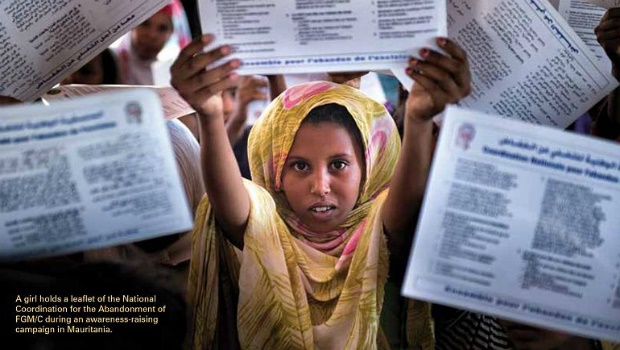
Female genital mutilation (FGM) is exacting a “crippling” economic toll on many countries, the UN said this week, as it launched a tool to help countries calculate the cost of treating girls and women harmed by the practice.
An estimated 200 million girls and women worldwide have undergone the procedure, which causes a host of mental and physical health problems – including haemorrhaging, chronic infections, cysts and life-threatening childbirth complications.
The World Health Organisation (WHO) calculated that it would cost $1.4 billion (R21 billion) a year to treat all resultant medical needs.
“FGM is not only a catastrophic abuse of human rights that significantly harms ... millions of girls and women, it is also a drain on a country’s vital economic resources,” said Ian Askew, director of the department of sexual and reproductive health and research at the WHO.
The ancient ritual – carried out on girls ranging in age mainly from infancy to 15 – involves the partial or total removal of external genitalia. In some cases, the vaginal opening is also sewn up.
The new calculator tool was launched on February 6, the International Day of Zero Tolerance for FGM. It covers 27 countries, mostly in Africa.
The cost of this tool would amount to about $876 825 000 in Egypt and to $274 765 000 in Sudan. For other countries, the cost would amount to 30% of their annual health expenditure, demonstrating the clear economic benefits of ending FGM, the WHO argued.
But, countered the anti-FGM global charity 28 Too Many, the health costs were a “drop in the ocean” compared with the wider costs for society and the economy.
“Girls who undergo FGM are often married off young, limiting their education and prospects,” said Ann-Marie Wilson, executive director of 28 Too Many.
“This entrenches poverty in communities and seriously holds back countries’ economic development.”
WHO scientist Christina Pallitto, who worked on the tool, said the long-term effects of infection and pain could also affect girls’ school attendance and work opportunities, adding: “All of this radically undermines the ability of women and girls to meet their potential.”
World leaders have pledged to end FGM by 2030, but UN data published on Thursday showed that rates in some countries were the same as they were 30 years ago – including in Somalia, where the practice remains almost universal.
The WHO has estimated that the health costs of FGM will soar by 50% by 2050 if no action is taken, as populations grow and more girls are cut. – Reuters




 Publications
Publications
 Partners
Partners









